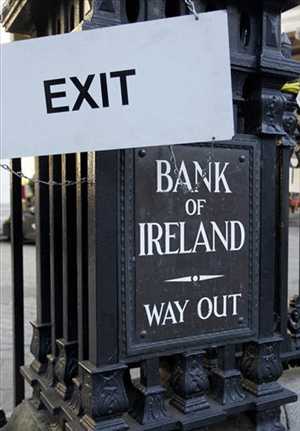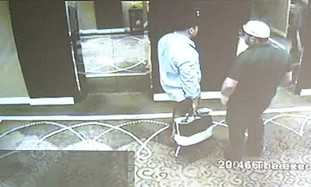 ALTAY CENGIZER
ALTAY CENGIZER
OPINION: Turkey has not become anti-Israel but Israel steadily alienates people around the world by its conduct. Future historians may have a different perspective to the one predicted on these pages recently by the Israeli ambassador
IT WAS only a few months ago that Israel placed the Turkish ambassador in a lower seat and banished the Turkish flag. The incident was childish more than anything else, but Israel had the good sense to apologise for it.
Now, more than a fortnight after the killing of nine compatriots of mine on the high seas aboard the Mavi Marmara , carrying much needed humanitarian aid to the besieged people of Gaza, Israel has yet to apologise. The Israeli government seems to think it does not owe us, at the very least, an apology for what it believes was an act of self-defence.
This is exactly where the crux of the problem lies: Israel’s self-image and its doctrine of self-defence. The reaction of the Israeli authorities to this grave event has been appalling. Instead of showing genuine remorse for what took place in international waters in the early hours of May 31st, and not even feigning concern, they initiated a wide-ranging campaign to depict the activists as terrorists with links to al-Qaeda.
A 19-year-old boy and men in their 50s and 60s hardly make for a terrorist gang.
Are we not to feel strongly any more about anything, without the threat of being labelled as terrorists? After all, the urge for a humanitarian aid flotilla was already there as world opinion continued to witness the perilously deteriorating conditions in the open-air prison that is Gaza.
A year ago, the Middle East quartet – the United Nations, the United States, the European Union and Russia – called for the unimpeded provision of humanitarian aid to Gaza, where even house plants, cocoa powder and coriander are banned from entry for reasons that are anyone’s guess.
The victims had multiple gunshot wounds, they were shot in the back or in the back of the head. A total of 32 bullets were extracted from their bodies. It took more than an hour for medical help to arrive while the wounded bled. The ship was carrying no weapons at all. There was absolutely no need to employ the Shaiatet 13 elite commandos.
Thanks to recent research, we now know that even bottlenose dolphins use short vocal bursts to send messages to avoid conflict at times of high excitement and aggression. But Israel stormed a civilian vessel 72 nautical miles off Gaza, nowhere near the blockade zone.
Hours passed, and the Israeli authorities did nothing to alleviate the gravity of the situation. They handcuffed everyone, and imposed a blackout on communications. This is why we did not see the video footage of Dr Uysal on the Mavi Marmara cleaning and treating the bruises of an Israeli commando.
Contrary to what Israel is saying, Turks from all walks of life and of different political persuasions were part of the humanitarian aid group. It is not that the Turks are becoming more radical vis-a-vis Israel, but that Israel steadily alienates large segments of public opinion, almost everywhere, including Turkey.
Now, if we are to believe the general tone emanating from Israel, Turkey is no longer a member of the comity of western nations, just on account of its diplomacy. Pretty much nonsense!
There is nothing un-western or un-European in asking for the lifting of the inhumane blockade on Gaza.
Neither is it un-western to try to exhaust diplomacy and all legitimate means at the international community’s disposal before punishing Iran, which would be a step with unpredictable consequences.
In its defence, the government of Israel refers to an obscure document called the San Remo manual.
This is not an international convention. Nobody was requested to sign up to it, and it relates specifically to legal practice in time of war. Israel is not at war with Turkey, but it attacked a ship flying the Turkish flag in international waters. This is precisely why there must be an international commission of inquiry. Then we can talk of credibility and transparency.
Only in 2008, the Israeli-Turkish trade reached a record high of $3.5 billion. Only in 2008, Turkey was just about to broker a historic political deal between Israel and Syria. One should wonder what took place to warrant this crisis. Israel’s assault on Gaza in December 2008 that killed more than 1,400 Palestinians, 431 of them children, lies at the centre of this chasm. Sadly, it has deepened even further with the killing of nine innocent Turks.
Historians may well ask what kind of hubris, what degree of intransigence and what levels of indifference caused Israel to lose Turkey, a land where Jews have felt a genuine welcome for so many centuries, and a traditional friend.
Whether May 31st, 2010, comes to signify a positive or a negative turning point for this important relationship, as well as for the whole region, depends on what Israel chooses to do now.
Altay Cengizer is Turkish ambassador to Ireland




